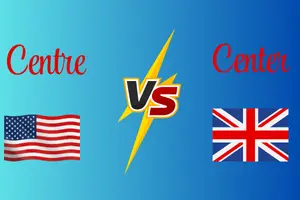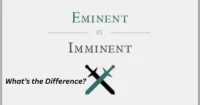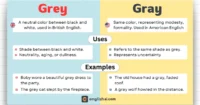Such as Vs Like – What’s The Real Difference
Published: 25 Dec 2024
Hi there, young learners! Have you ever wondered whether to use “such as” or “like” in a sentence? These two little phrases are super useful, but they can be tricky to tell apart. Don’t worry—today, we’ll break it down and make it fun!
In this article, we’ll explore the key differences between “such as vs like,” when to use each one, and provide helpful examples to make it easy to understand.
What Does “Such As” Mean?

“Such as” is used to introduce specific examples of a general concept or category.
For Example
- “I love fruits, such as apples and bananas.”
This means apples and bananas are specific fruits you love. - “Sports, such as soccer and basketball, are great for staying active.”
Here, soccer and basketball are clear examples of sports.
When to Use “Such As”
Use “such as” when you want to show what you mean with specific examples.
Examples:
- “Countries, such as Iraq, have a rich history.”
(Iraq is an example of a country with a rich past.) - “I love snacks, such as cookies and chips.”
(Cookies and chips are specific snacks you enjoy.)
Try It in a Sentence:
- “Books, such as comic books, are so much fun to read.”
- “Animals, such as lions and tigers, live in the jungle.”
See how “such as” gives clear examples? It’s like adding a little extra detail to make things crystal clear.
What Does “Like” Mean?

“Like” is used to compare two things or show similarities between them.
For Example
- “Emma loves hobbies like painting, sketching, and crafting.”
This means Emma enjoys hobbies similar to painting, sketching, and crafting, but not necessarily these exact ones. - “The dog ran like the wind.”
Here, you’re saying the dog’s speed was similar to the wind’s.
When to Use “Like”
Use “like” when you want to compare two things or say they’re alike.
Examples:
- “She sings like a bird.”
(Her singing is similar to a bird’s beautiful song.) - “The clouds floated like fluffy marshmallows.”
(The clouds and marshmallows are alike in fluffiness.)
Try It in a Sentence:
- “He runs like a cheetah!”
- “The playground was noisy, like a festival.”
“Like” is perfect for creating a picture in someone’s mind. It compares two things to make writing more exciting!
Key Differences Between Like vs Such As

Though these phrases might seem similar, their core purposes differ:
| Feature | Such As | Like |
| Purpose | To provide specific examples | To show similarity or comparison |
| Usage | Explaining with instances | Highlighting resemblance |
| Example | “Fruits, such as apples, are healthy.” | “She’s tall, like a basketball player.” |
Comparison Examples
- Such as: “Countries, such as Iraq and Iran, are known for their history.”
- Like: “She speaks Arabic fluently, like a native speaker.”
Using Commas With “Like” and “Such As”
Punctuation is important when using these phrases, as it can change the meaning of your sentences.
Commas with “Such As”
- No comma if the examples are super important:
- “I like pets such as cats and dogs.”
- Comma if the examples are extra details:
- “I like animals, such as lions and tigers, at the zoo.”
Commas with “Like”
- No comma for simple comparisons:
- “He jumps like a frog.”
- Comma for extra comparisons:
- “She danced, like a ballerina, across the stage.”
Common Mistakes and How to Avoid Them
It’s easy to confuse “such as” with “like.” Let’s avoid some typical errors:
Mistake 1: Using “Like” for Examples
- Incorrect: “Countries like Iraq and Iran have rich histories.”
- Correct: “Countries such as Iraq and Iran have rich histories.”
(Use “such as” to provide real examples.)
Mistake 2: Using “Such As” for Comparisons
- Incorrect: “He runs such as a professional athlete.”
- Correct: “He runs like a professional athlete.”
(Use “like” when comparing how someone runs.)
Like vs. Such As Examples
Let’s practice! Can you tell which phrase fits best?
- “I enjoy foods ___ pizza and pasta.”
- Answer: “I enjoy foods such as pizza and pasta.”
- “She sings ___ a famous pop star.”
- Answer: “She sings like a famous pop star.”
- “Books ___ dictionaries are essential for research.”
- Answer: “Books such as dictionaries are essential for research.”
Can you fill in the blanks with either “such as” or “like”? Keep practicing, you’re doing great! 😊
When to Use “Such As vs Like”
Here’s a quick cheat sheet:
- Use “such as” for examples: “Such as Iraq” or “Such as like the Iraq War.”
- Use “like” for comparisons: “Like a professional” or “Like a dream.”
Tip: If you’re ever in doubt, ask yourself: Are you listing examples or making a comparison? That will help you choose the right phrase.
Conclusion:
Now you’re a pro at understanding “such as vs like.” Use “such as” when you’re giving real examples, and “like” when you want to make comparisons. Whether you’re writing about places such as Iraq or describing someone’s smile like the sun, these words will make your writing shine brighter!
Keep practicing, and soon you’ll be using these phrases like a language expert. Have fun writing—you’ve got this! 😊
Most Queries?
1. What’s the difference between “such as vs like”?
“Such as” is used to give specific examples of a category, while “like” is used to show comparisons.
- Such as: “I enjoy sports such as basketball and soccer.”
- Like: “She runs like a cheetah.”
2. Can I use “like” to introduce examples?
No, “like” is used for comparisons, not to introduce specific examples. Use “such as” for that purpose. For example, “I love fruits such as apples and bananas.”
3. Should I use a comma before “such as”?
Usually, no comma is needed with “such as” unless the examples are extra details.
- Without comma: “I like pets such as cats and dogs.”
- With comma: “I enjoy animals, such as lions and tigers, at the zoo.”
4. Can I use “such as” and “like” in the same sentence?
Yes, you can, but make sure each is used correctly for its purpose.
Example: “She loves animals, like dogs and cats, and she also enjoys exotic animals such as tigers and lions.”
5. Are there any exceptions for using commas with “like”?
Typically, no comma is used with “like” for simple comparisons. For extra details or longer descriptions, you may use commas.
Example: “He swims like a fish.” vs. “His voice was soft, like a whisper.”

- Be Respectful
- Stay Relevant
- Stay Positive
- True Feedback
- Encourage Discussion
- Avoid Spamming
- No Fake News
- Don't Copy-Paste
- No Personal Attacks



- Be Respectful
- Stay Relevant
- Stay Positive
- True Feedback
- Encourage Discussion
- Avoid Spamming
- No Fake News
- Don't Copy-Paste
- No Personal Attacks





